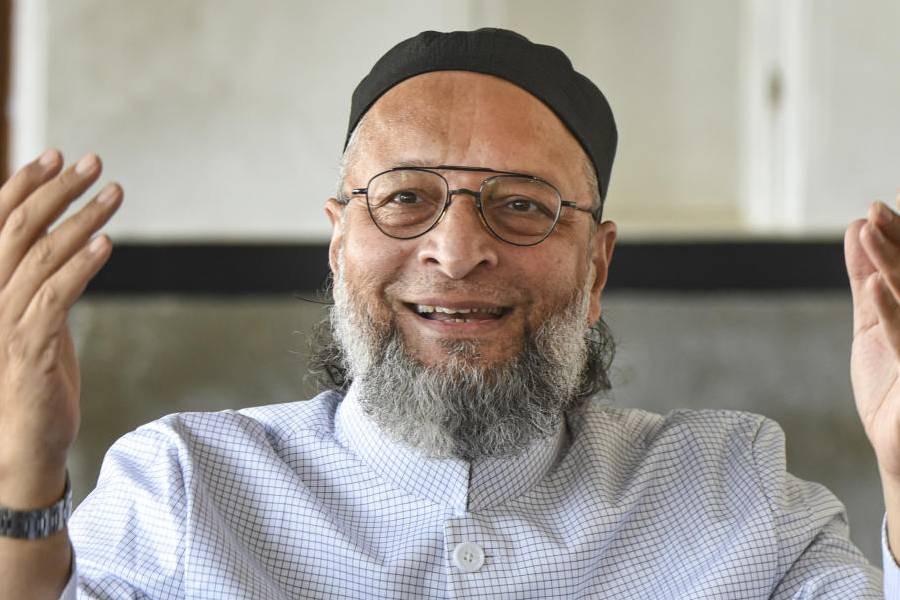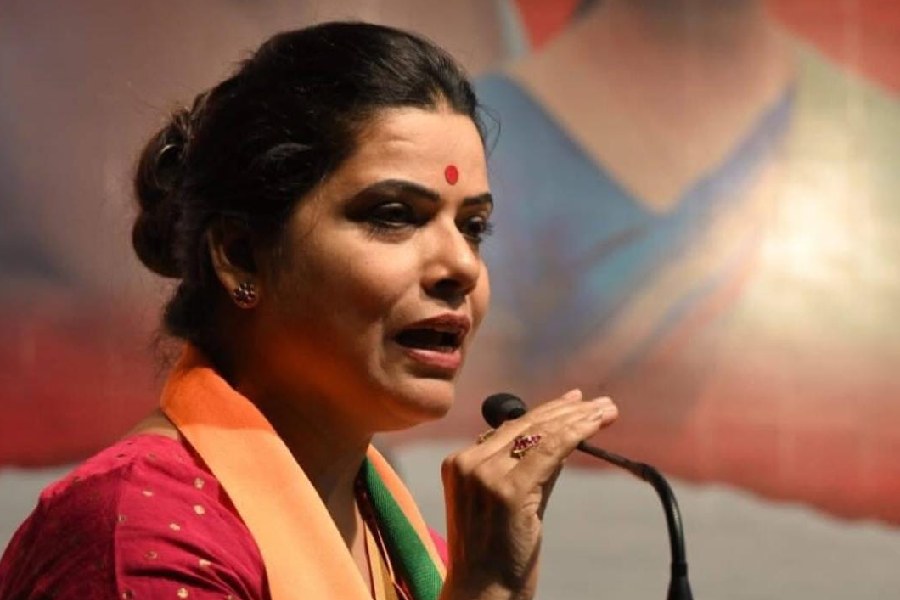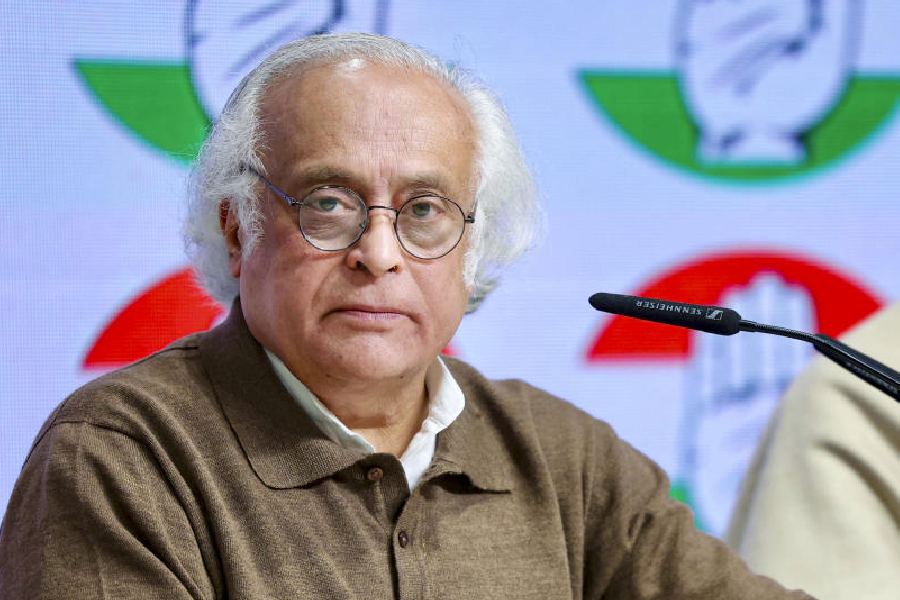I grew up in Bangalore at a time when it hadn’t yet gained the reputation of being the ‘Silicon Valley’ of India. In fact, as kids, it was a rather slow-paced life, with much time on our hands. Long summer vacations, long stretches of restlessness. Much like today, technology was very much a part of the everyday life in my childhood. My dominant memories of new technology was really about new forms of entertainment,” says Payal Arora, researcher, author and lecturer at Erasmus University Rotterdam.
Arora’s new book — The Next Billion Users (Harvard University Press) — “examines the online lives of millions of people in China, India, Brazil, and across the Middle East — home to most of the world’s Internet users — and discovers that what they are doing is not what we imagine”. Before speaking at the fourth edition of DesignUp (which took place recently), a festival that explores the integration of technology and design, in Bangalore, she took on a few questions from The Telegraph on email. Excerpts.

Also, let’s not undermine boredom as a key catalyst — the excruciating and pervasive feeling that many of these young people experience who are often unemployed or trapped in dehumanising tasks and where digital media provides an essential coping mechanism in their everyday lives," says Arora. Picture courtesy: Payal Arora
What was the catalyst for The Next Billion Users? And what is driving the next billion users?
Multiple trigger points hooked these next billion users. Long-lasting battery life tapped into the larger problem of chronic electricity shortages pervasive in the global south. Mobile phones tapped into the deep desire to be liberated from situations and contexts often not of their own making. Literally so — as young men are constantly stuck in traffic, to women who are stuck at home and do not enjoy much freedom. Macro movements like mass migration in search of a livelihood have been the long-standing fact of life for many of these users with little choice — Filipino nurses going to Canada, leaving their children in the care of their parents, to Bangladeshi construction workers leaving for the Middle East to support their families. The mobile Internet has enabled them a little more companionship, a little more intimacy and a little less loneliness as they get online and eagerly absorb photos of their loved ones, share a joke on WhatsApp or get a smile from a Tiktok video their friends did.
Also, let’s not undermine boredom as a key catalyst — the excruciating and pervasive feeling that many of these young people experience who are often unemployed or trapped in dehumanising tasks and where digital media provides an essential coping mechanism in their everyday lives. Nonstop listening to music, obsessive checking of messages, fanatic re-watching of favourite Bollywood or Nollywood (Nigerian film industry) stars are all now possible with the mobile Internet and digital media showcasing for us what their leisure economy looks like. After all, they are driven by the very wants that we have — to be happy, to find joy and love, and to be safe.
What are some of the concerns people in developing countries should have when it comes to online privacy?
Before we start to question and instruct on what privacy concerns these users ‘should’ have, we need to understand why they appear so ‘irrational’ in their trust of digital media — after all, many of these next billion users reside in countries that are authoritarian in nature. This comes with a constant surveillance of their online activity and possible penalties from fines, imprisonment to at times even death if they share anti-government or sexually-explicit content. And, this is just the state. There is also the interpersonal surveillance of their families and neighbours constantly monitoring their every move and the pressures of society that can lead to reputation damage, especially for women and girls. For example, a compromising photo or video of theirs (often doctored) is leaked out to the public and that can even lead to honour killings. So why, in spite of these extraordinarily high risks, do they share so very much online? Are they naive? Are they not very smart in their understanding of the harms they face?
Well, these next billion users, more so than you and I, have been long accustomed and subjected to a surveillance life. Privacy is a luxury for them. This is the norm in their social circles and yet, despite these conditions, platforms like Instagram, Facebook or WhatsApp appear to provide a little more freedom in their self-actualisation. After all, these are teenagers and they do what teens typically do — desperately seek outlets to discover who they are and what they can become in spite of the high privacy risks. Social media may provide this little window of opportunity that otherwise their immediate and physical environments often may not permit.
In fact, we may even learn a thing or two on how they may appear very public but when seeking for privacy and anonymity, they pioneer creative strategies to hide in plain sight online through, for instance, a play of language or usage of visual memes when online. They may take on multiple SIMs, phones, and accounts to hold different identities and get to say and do what they want. Frankly, we need to think beyond the Anglo-Saxon framework of privacy regulation being primarily about individual consent and data ownership if we are to sensitise ourselves to the spectrum of privacy values these users have.
What does privacy mean to users in the US or Europe versus India and South Asian countries?
Privacy as the ‘right to be left alone’ is a shared human value across the world. The debate is more about where this value stands compared to other values that people hold dear, based on their conditions and contexts. Privacy after all is not an absolute but a relative value.
For instance, the US and Europe, in spite of the political dramas at play nowadays, still fall within the five per cent of the countries that enjoy a liberal democracy. This means that, relative to the rest of the world, they enjoy a more functional set of social institutions that enable legal protection, political participation and freedom of expression. These are wealthy countries where the users have been obsessed by the market and the state for their attention. This is bound to influence their perceptions of trust, and their behaviours on exercising their freedoms and wanting to be left alone. In comparison, South Asian countries may see the freedom of expression, for example, as less important than a more pressing need to keep peace and reduce the violence and disruption in society.
And, as I mentioned earlier, as much of these next billion users have been long neglected and pretty much have been the invisible public for so long, they are now enjoying the visibility and legitimacy as users in a marketplace.
Now, we know that there is also a growing inequality in these regions and, in fact, the marginalised populations within these countries such as welfare recipients, refugees, and prisoners, as well as long discriminated groups like the African-Americans and LGBTQ communities, may have more in common with the marginalised users in the global south. Their inherent dearth of choices can foster more common ground and empathy with the next billion users in the global south than within their national territories.
While focusing on the next billion users, are tech companies like Google, Facebook or Apple forgetting the older demographic?
Absolutely, and that is the modus operandi within many industries. In spite of the fact that the data tells us otherwise. In India, the mobile Internet uptake among the older generations went up by 16 per cent in just 2018-2019 alone. In Europe, older generations on average are relatively well off and are ready to experience travel, adventure, and yes, adopt new technologies and applications. They may want to use less apps, and have more targeted needs and demands due to their age, health, and stages in life but either way, they immerse more intensively within digital worlds and for longer and more sustained periods.
In fact, they have a lot in common with the next billion users — both groups hate condescension. Older people reject apps that signal that they are ‘old’ — font being extra-large, earpieces designed as hearing aids (especially if it’s visible and clunky), and marketing campaigns that speak to their ‘age’ and not their desires, their aspirations, and their passions. Users don’t need reminders that they are old or poor — they need markets to not reduce them to these categories but rather, to do their bit to recognise, legitimise, and help them flourish within their constrained settings. Do this and you will gain a loyal following.
Is tech-driven entertainment a bigger issue in countries like India than the West? Data is cheap and family members now sit around glued to their devices watching Netflix or browsing Facebook without talking to one another.
Why do we need to see this as a critical “issue” over just a contemporary phenomenon? Isn’t it natural to seek for leisure, especially so in highly competitive countries like India? Yes indeed, there is far more obsession with digital media in India as compared to the West. Partly this has to do with the rising everyday stresses of life — people are working more hours and many organisations give their workers little time off. A six-day workweek is the norm. Commuting to work, long-distance relationships, family expectations, and other demands can weigh people down. Digital media consumption has become a critical way to keep their sanity, deal with their stress, and escape from the tedium of a job that doesn’t tap into their capability. It is an escape mechanism.
We should be careful of feeding the myth of how the Internet is fostering an “alone together” culture where we are becoming anti-social beings. Before it used to be the television, which created a moral panic of how families would stop talking to one another. Today, decades of research later, we know that it has also brought families and friends together — families put their tensions aside while watching a favourite show together; friends bond over movie stars or gossip over an outrageously bad interview on TV. It isn’t that different today. We break ice with family through a WhatsApp joke, maintain weak ties via Facebook with school friends we would’ve lost track of, and share our favourite TikTok videos with our buddies to get that sense of intimacy even when physi-cally distant. This is even more important with the next billion market who struggle to maintain a normal family and friend life as their social conditions can amplify their feelings of isolation and depression.
Tell us about your childhood in India. What was it like and how much of it revolved around technology?
My dad bought this Pac-Man console one day. Now at that time my dad was working from morning to night at this factory that was far away so we barely saw him during this time. So, we developed a little tradition. You see, my dad and I are extremely competitive in nature. He would play the game and leave the device outside my room before leaving for the factory. I would then spend all day beating his score. I would leave the console next to his bedside to remind him who was the champion. This went on for quite a while. We wouldn’t speak about it but there was an ongoing war on who was the Pac-Man god in the house. Once I even asked my mum to serve as a witness to how I could beat my dad’s score by playing with my toes.
You know, this is what we should not forget. While technology is often associated with higher efficiency and better functionality, it becomes truly meaningful when it becomes loved and a part of you.










